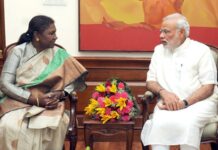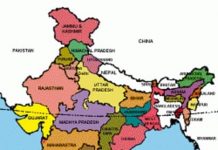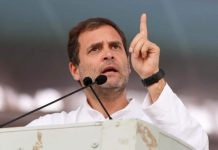New Delhi (IANS): Terming as “highly objectionable” the reports that said the BJP was among the parties which the US National Security Agency (NSA) was authorised to spy upon, India Wednesday summoned a senior US diplomat and sought an explanation on the issue.
External affairs ministry spokesperson Syed Akbaruddin said India has clearly explained its concerns to the US government and sought an assurance that it would not happen again.
He said intrusion of privacy of individuals and institutions was highly objectionable.
“We have already communicated to the government of the United States. We have said that we have seen reports in the US media regarding authorisation given to entities of the US government to intrude upon the privacy of communications of the Indian government, its citizens and Indian entities. If such intrusions have indeed been authorised and have taken place, these are highly objectionable,” Akbaruddin said.
According to a report in the Washington Post, India was among 193 countries “concerning” whom the NSA has been authorised to intercept information by the Foreign Intelligence Surveillance Court.
The NSA exempted only four countries – Britain, Canada, Australia and New Zealand – “in a group known collectively with the US as the Five Eyes” from such surveillance, the newspaper reported.
The US has had broad no-spying arrangements with these four countries, the Post said, citing a new set of top secret documents leaked by Edward Snowden, a former NSA contractor-turned-whistleblower who has been given asylum in Russia.
India figures in the list of “193 foreign governments as well as foreign factions, political organisations and other entities that were part of a 2010 certification approved by the Foreign Intelligence Surveillance Court”, said an accompanying exhibit cited by the newspaper.
The Bharatiya Janata Party, which leads the ruling National Democratic Alliance government, was one of the six non-US political parties across the globe that the NSA received official permission in 2010 to covertly spy upon, the post reported.
Akbaruddin said the government had conveyed its message “clearly and lucidly” and will wait for a response from the US.
“(We have) sought explanation of press reports and sought an assurance that such authorisation will not be acted upon by the US as far as Indian government or entities are concerned,” he said.
Asked about the response of the US official, he said the US has conveyed that it will get back after making a judgement on what information it would like to share.
Akbaruddin did not name the US diplomat to whom India conveyed its message.
The US has an interim ambassador in India after former American envoy Nancy Powell resigned from her post.
Akbaruddin did not reply directly to a question whether the snooping row will have an impact on the ties between the two countries.
He said the two countries share a multi-faceted relationship.
“The relationship is broadbased and multi-faceted. Both India and the US were committed to deepening it,” he said.
Akbaruddin had Tuesday termed the revelations that the BJP was among the foreign political parties whom the NSA had been authorised to spy upon, as totally unacceptable and “extremely disconcerting”.
India has in the past raised with the US the issue of its intelligence apparatus trawling electronic communications, mainly e-mails.
The snooping row has coincided with US senator John McCain’s visit to India that began Wednesday.
McCain’s visit is the first of visits from the US in an apparent effort to boost bilateral relations after the Narendra Modi-led government came to power in India.
US Deputy Secretary of State William Burns and US Secretary of State John Kerry are also expected to visit India this month.
Relations between India and the US went through a delicate patch following a row over the treatment and arrest of Indian diplomat Devyani Khobragade in New York in December.
The row also comes ahead of Prime Minister Modi’s expected meeting with US President Barack Obama in September.














